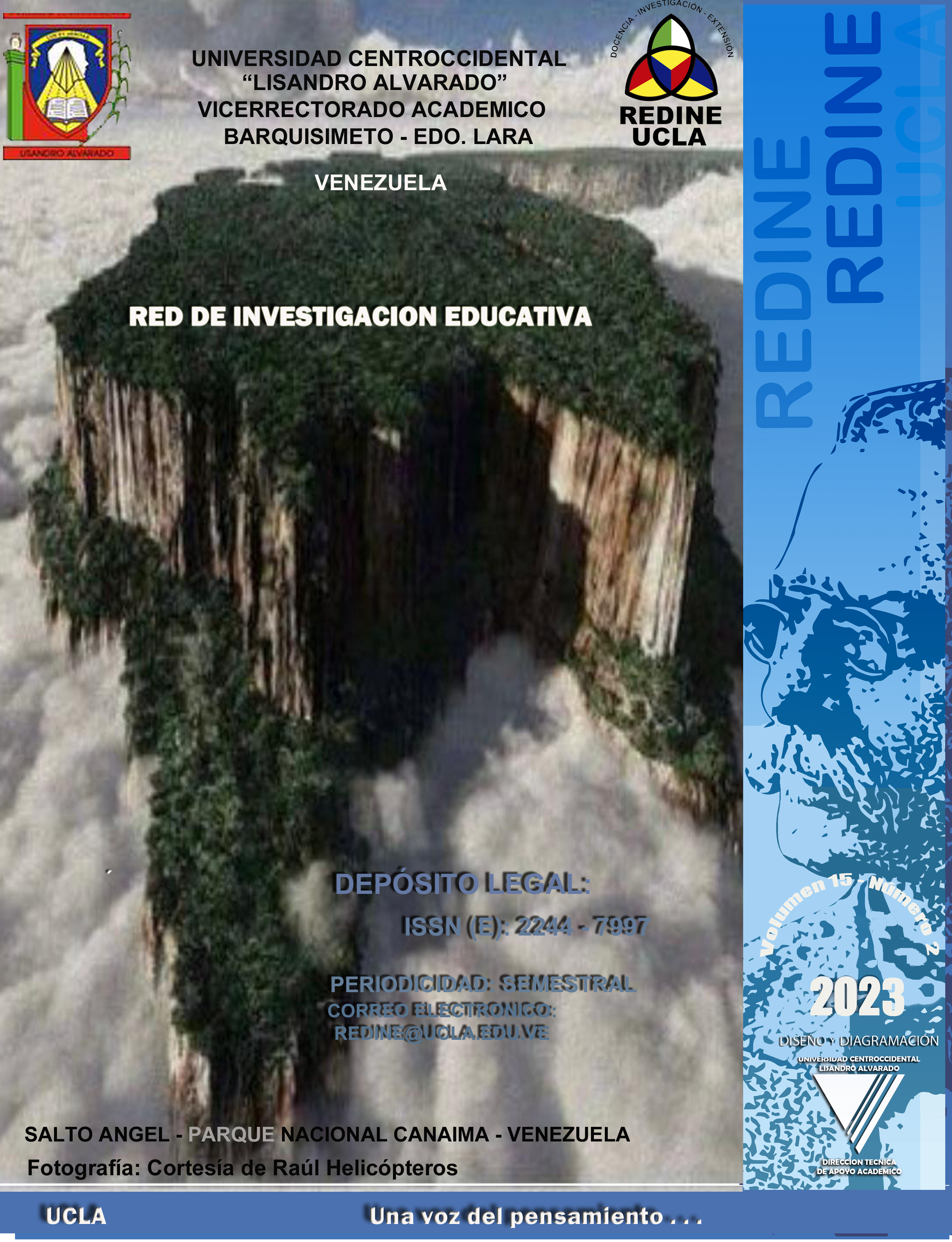emerging visions in the development of university teaching in times of pandemic virus Covid-19
DOI:
https://doi.org/10.5281/zenodo.8092070Keywords:
emerging visions, curricular development, university teaching, Covid-19Abstract
This scientific article presents substantive contributions emerging from the study of curricular visions in the development of university teaching in times of the COVID-19 virus pandemic, a historical milestone for humanity that guides teachers to compensate for their work to assume new pedagogical challenges. Through the interpretation of the testimonies of four social actors, the curricular development in the distance education modality, to give continuity to the training processes and involved the design of curricular materials from new applications, platforms and digital tools. The inquiry projected from the interpretivist paradigm, qualitative approach, and phenomenological method under the modality of curricular research based on hermeneutics. The information systematized in hermeneutic matrices to develop the findings and generate theoretical constructs. We understood that university teachers are committed to developing a socially relevant educational practice with a vocation of service for themselves and others. Therefore their work must: (a) promote the development of the potential of the students so that from them they undertake actions of change; (b) have an open and committed spirit to establish a pleasant and dialogical accompaniment process that allows peers to meet and learn; and (c) the curricular construction from new ontological, methodological and epistemological aspects.
Downloads
References
Agreda, A. y Pérez, M. (2020). Relación entre Acompañamiento Pedagógico y Práctica Reflexiva Docente. Revista de Educación, 2(30), 219-232
Alvarado, N. (2019). Criterios Técnicos para el Diseño de Materiales Curriculares: Una Construcción en Escenarios Ipebistas. REDINE UCLA, 11 (2), 23–49.
Alvarado, N. y Villarreal, M. (2019). Construcciones Curriculares Emergentes de los Docente en su Práctica Pedagógica. EDUCARE UPEL-IPB, 23(1), 4-26.
Alvarado, N. (2019). Investigación Curricular: su Práctica y Proceder Metodológico. Trabajo de Ascenso Publicado, Universidad Pedagógica Experimental Libertador, Instituto Pedagógico Luis Beltrán Prieto Figueroa, Barquisimeto.
Alvarado, N. (2020). Quehacer Docente desde la Óptica de los Intereses Constitutivos del Conocimiento. REDINE UCLA, 12(2), 46-55.
Alvarado, N. (2022). Quehacer Docente en Escenarios Universitarios. Significados Construidos desde el profesional Docente. Tesis Doctoral Publicada, Universidad Pedagógica Experimental Libertador, Instituto Pedagógico Luis Beltrán Prieto Figueroa, Barquisimeto.
Ávila, E., y Piñero, M. (2020). Editorial. EDUCARE, UPEL-IPB, 24(1), 1-5.
Escudero, J. (2007). Diseño, Desarrollo e Innovación del Currículum. Madrid: Síntesis.
García, A. y Pereira, M. (2004). De la Educación a Distancia a la Educación Virtual. Barcelona: Ariel.
Glaser, B. (1992). Basics of Grounded Theory Analysis: Emerge vs. Forcing. California: Mill Valley
Grundy, S. (1988). Producto o Praxis del Curriculum. Madrid: Morata.
Mendiola, M. (2020). Retos Educativos Durante la Pandemia de COVID-19: una Encuesta a Profesores de la UNAM. Revista Digital Universitaria, 21(3), 1-24.
Martínez, F. y Solano, I. (2003). El Proceso Comunicativo en Situaciones Virtuales. Barcelona: Paidós.
Martínez Miguélez, M. (2007). Ciencia y Arte en la Metodología Cualitativa. Métodos Hermenéuticos, Métodos fenomenológicos y Métodos etnográficos. México: Trillas
Organización de las Naciones Unidas para la Educación, la Ciencia y la Cultura. (2020). Educación en Tiempos de Pandemia de Covid-19. CEPAL.
Organización de las Naciones Unidas para la Educación, la Ciencia y la Cultura. (2020). Hacia el Acceso Universal de la Educación Superior. Tendencias Internacionales. CEPAL.
Organización de las Naciones Unidas para la Educación, la Ciencia y la Cultura y los estudios sobre América Latina y el Caribe. (2020). COVID-19 y Educación Superior: de los Efectos Inmediatos al Día Después: Análisis de Impactos, Respuestas Políticas y Recomendaciones. IESALC
Perrenoud, V. (2004) Nuevas Tecnologías y Educación (diseño, desarrollo, uso y evaluación de materiales didácticos. México. Editorial Trillas.
Rappoport, S. (2020). Enseñar en tiempos de COVID-19. Una Guía Teórico-Práctica para Docentes. UNESCO, Montevideo.
Sacristán, J. (2007). El Curriculum: una Reflexión sobre la Práctica. Madrid: Morata.
Sarramona, J. (1999). La Autoformación en una Sociedad Cognitiva. Revista Iberoamericana de Educación a Distancia. 2(3) pp. 28-37.
Strauss, A. y Corbin, J. (2002). Bases de la Investigación Cualitativa. Técnicas y Procedimientos para Desarrollar la Teoría Fundamentada. Colombia: Universidad de Antioquia.
Taylor, S. y Bogdan, R. (1990). Introducción a los Métodos Cualitativos de Investigación. Buenos Aires: Paidós
Villarreal, M. (2021). Aproximación Didáctica para la Formación de Formadores. Una Sistematización de Experiencias en Escenarios Ipebistas. Educare, 25(2), 161-186.
Published
How to Cite
Issue
Section

This work is licensed under a Creative Commons Attribution-NonCommercial-ShareAlike 4.0 International License.
Derechos del/de autor/es a partir del año de publicación
Esta obra está bajo la licencia:
Creative Commons Reconocimiento-NoComercial-CompartirIgual 4.0 Internacional (CC BY-NC-SA 4.0)
Las opiniones expresadas por los autores no necesariamente reflejan la postura del editor de la publicación ni de la UCLA. Se autoriza la reproducción total o parcial de los textos aquí publicados, siempre y cuando se cite la fuente completa y la dirección electrónica de esta revista. Los autores(as) tienen el derecho de utilizar sus artículos para cualquier propósito siempre y cuando se realice sin fines de lucro. Los autores(as) pueden publicar en internet o cualquier otro medio la versión final aprobada de su trabajo, luego que esta ha sido publicada en esta revista.




